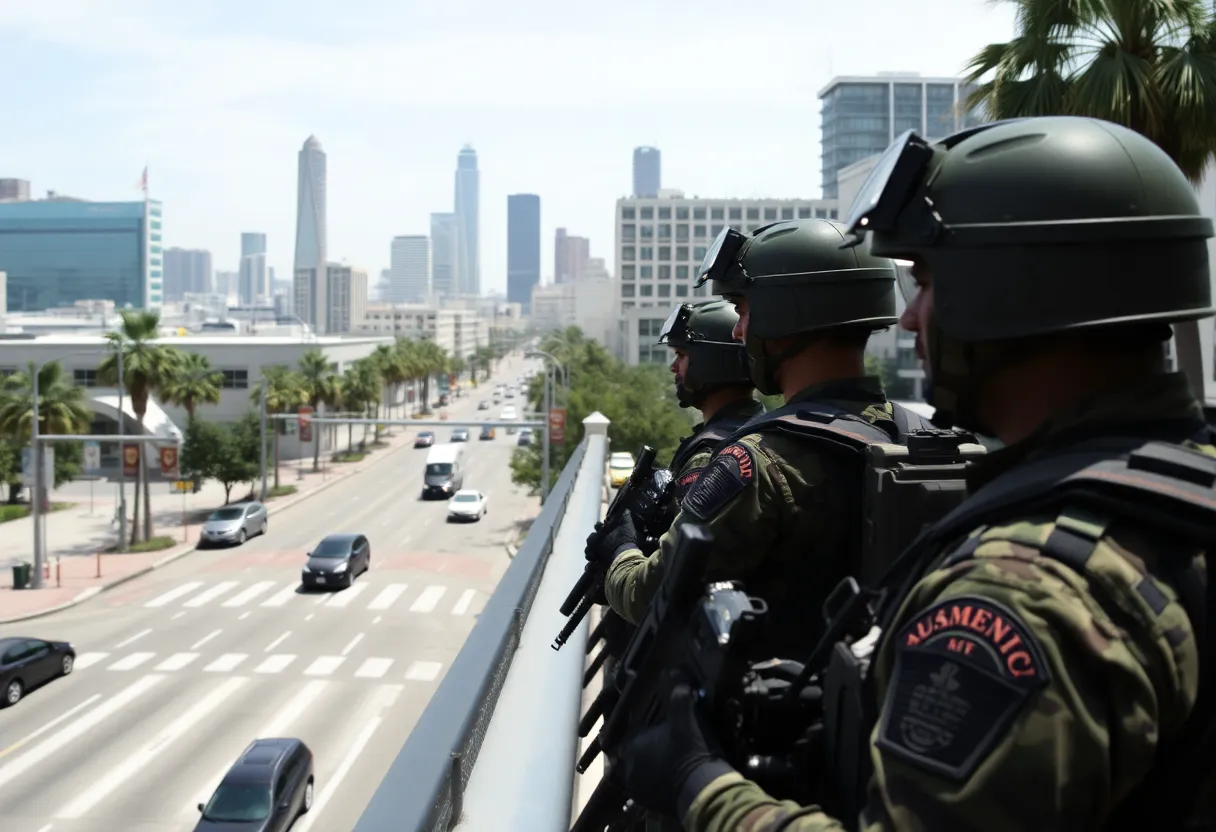

National Guard Troops in Los Angeles
Want to target the right audience? Sponsor our site and choose your specific industry to connect with a relevant audience.
Prominent brand mentions across targeted, industry-focused articles
High-visibility placements that speak directly to an engaged local audience
Guaranteed coverage that maximizes exposure and reinforces your brand presence
Interested in seeing what sponsored content looks like on our platform?
May’s Roofing & Contracting
Forwal Construction
NSC Clips
Real Internet Sales
Suited
Florida4Golf
Click the button below to sponsor our articles:
Sponsor Our ArticlesThe 9th U.S. Circuit Court of Appeals has ruled that the Trump administration can maintain National Guard troop presence in Los Angeles amidst ongoing legal disputes. The decision emphasizes the complexities of deploying military forces within U.S. cities and the ongoing tension between state rights and federal authority. California’s legal challenge continues as state officials voice concerns over the necessity of military presence while local law enforcement manages protests. The case explores critical issues surrounding presidential power and the boundaries of military involvement in civil unrest.
In a recent ruling, the 9th U.S. Circuit Court of Appeals has decided that the Trump administration can keep the National Guard troops stationed in Los Angeles while a legal showdown unfolds. This case has grabbed attention due to the broader implications it might have on how military forces can be deployed within U.S. cities.
The court recognized that President Trump does have considerable power when it comes to deploying military personnel. However, the judges also made it clear that these decisions aren’t completely beyond review. They emphasized that the judicial branch should give deference to the executive branch regarding national security matters, yet still maintain oversight.
California’s Attorney General expressed that the legal tussle is not over yet. The ruling has just kicked the can down the road, as they’re determined to continue fighting the federal government’s move. This back-and-forth highlights a critical tension between state rights and federal authority, a debate that has been reignited with the current climate.
On the other side, California Governor voiced strong criticism against the troop deployment, suggesting it reflects an “authoritarian use of U.S. military soldiers against citizens.” Such sentiments reveal a growing unease among state leaders regarding federal interventions in local matters.
Legal experts are pondering whether changes in the 9th Circuit’s ideological balance might have influenced the court’s recent ruling. The appeals panel also showed skepticism toward the federal government’s argument that the president’s authority to federalize National Guard troops is immune from judicial scrutiny.
This latest ruling brings the case back to U.S. District Judge Charles R. Breyer, who had previously ruled against the federal government. Interestingly, the court didn’t dive into whether the situation in Los Angeles can be characterized as a “rebellion,” focusing instead on the limits of presidential power and authority over state National Guards.
In its analysis, the court highlighted the importance of judicial review to avoid decisions that could be seen as “absurd” or made in bad faith when it comes to federalizing National Guard troops. California’s original legal challenge also touched upon potential violations of the Posse Comitatus Act, a situation that remains unresolved as the legal battles continue.
California officials are arguing that the troop deployment isn’t necessary, given that local law enforcement has been managing protests just fine. This raises an essential question about the intentions and need for military presence in urban settings.
As it stands, there are roughly 4,800 National Guard troops deployed in Los Angeles, which includes 4,100 from the California Army National Guard and about 700 U.S. Marines. While these troops have been trained in de-escalation and crowd control, they are prohibited from engaging in civilian law enforcement activities.
The ongoing legal proceedings are bound to shape the future of military deployment in civilian scenarios across the U.S. This case is pivotal in exploring the boundaries of presidential power, the rights of states, and the role of military forces in managing civil unrest. The implications of these decisions will be felt long after the courts finalize their stance on this contentious issue.
News Summary Florida has enacted House Bill 351, imposing severe penalties for extreme speeding to…
News Summary The National Weather Service has issued a heat advisory for South Florida as…
News Summary Florida has established itself as the top state in the nation for small…
News Summary Florida State University's Little Dinner Series is set to return this fall, offering…
News Summary During a recent meeting, the Leon County Commission discussed significant audit findings, approved…
News Summary The office market in South Florida is seeing significant growth, with Broward County…